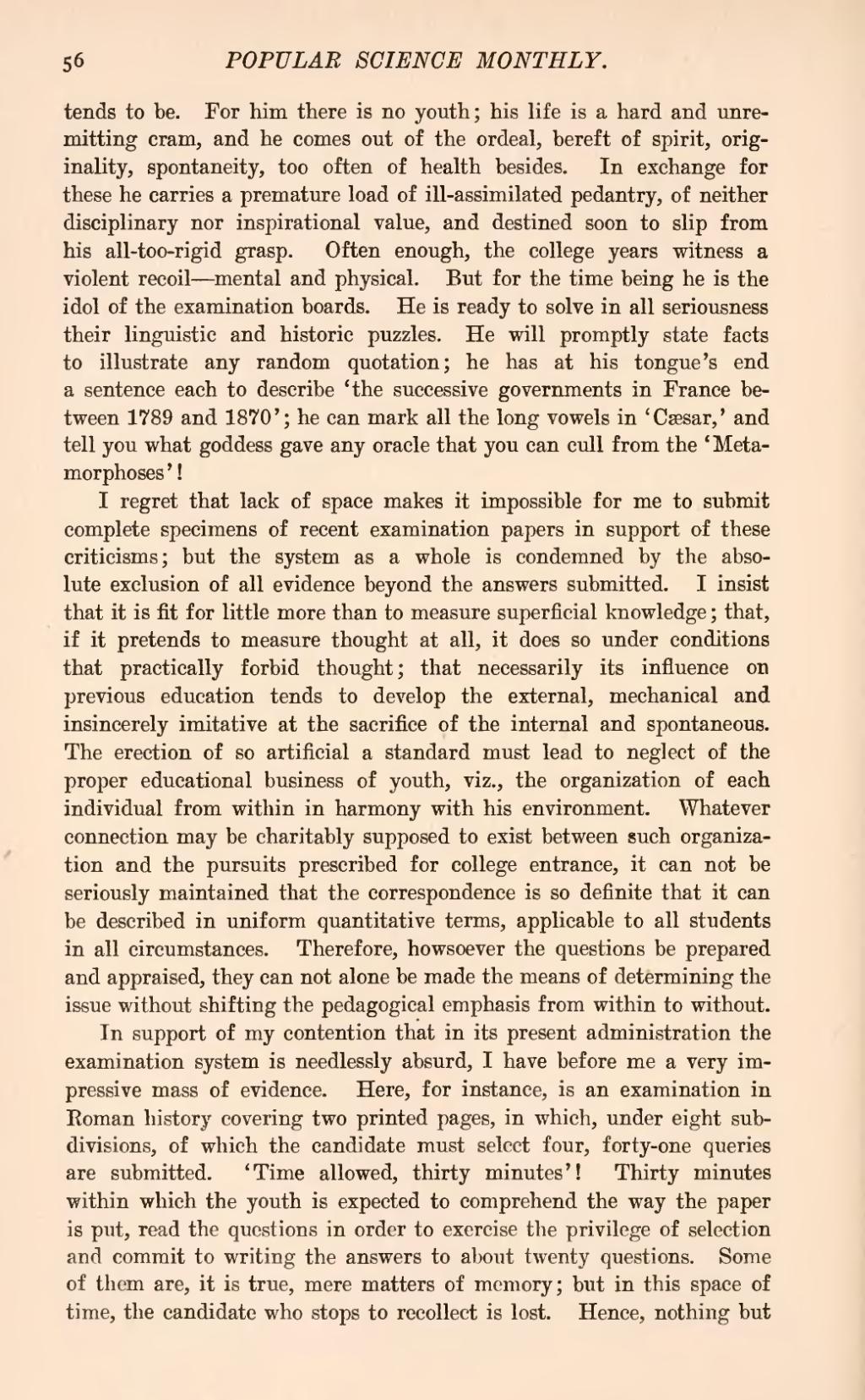tends to be. For him there is no youth; his life is a hard and unremitting cram, and he comes out of the ordeal, bereft of spirit, originality, spontaneity, too often of health besides. In exchange for these he carries a premature load of ill-assimilated pedantry, of neither disciplinary nor inspirational value, and destined soon to slip from his all-too-rigid grasp. Often enough, the college years witness a violent recoil—mental and physical. But for the time being he is the idol of the examination boards. He is ready to solve in all seriousness their linguistic and historic puzzles. He will promptly state facts to illustrate any random quotation; he has at his tongue's end a sentence each to describe 'the successive governments in France between 1789 and 1870'; he can mark all the long vowels in 'Cæsar,' and tell you what goddess gave any oracle that you can cull from the 'Metamorphoses'!
I regret that lack of space makes it impossible for me to submit complete specimens of recent examination papers in support of these criticisms; but the system as a whole is condemned by the absolute exclusion of all evidence beyond the answers submitted. I insist that it is fit for little more than to measure superficial knowledge; that, if it pretends to measure thought at all, it does so under conditions that practically forbid thought; that necessarily its influence on previous education tends to develop the external, mechanical and insincerely imitative at the sacrifice of the internal and spontaneous. The erection of so artificial a standard must lead to neglect of the proper educational business of youth, viz., the organization of each individual from within in harmony with his environment. Whatever connection may be charitably supposed to exist between such organization and the pursuits prescribed for college entrance, it can not be seriously maintained that the correspondence is so definite that it can be described in uniform quantitative terms, applicable to all students in all circumstances. Therefore, howsoever the questions be prepared and appraised, they can not alone be made the means of determining the issue without shifting the pedagogical emphasis from within to without.
In support of my contention that in its present administration the examination system is needlessly absurd, I have before me a very impressive mass of evidence. Here, for instance, is an examination in Roman history covering two printed pages, in which, under eight subdivisions, of which the candidate must select four, forty-one queries are submitted. 'Time allowed, thirty minutes'! Thirty minutes within which the youth is expected to comprehend the way the paper is put, read the questions in order to exercise the privilege of selection and commit to writing the answers to about twenty questions. Some of them are, it is true, mere matters of memory; but in this space of time, the candidate who stops to recollect is lost. Hence, nothing but
